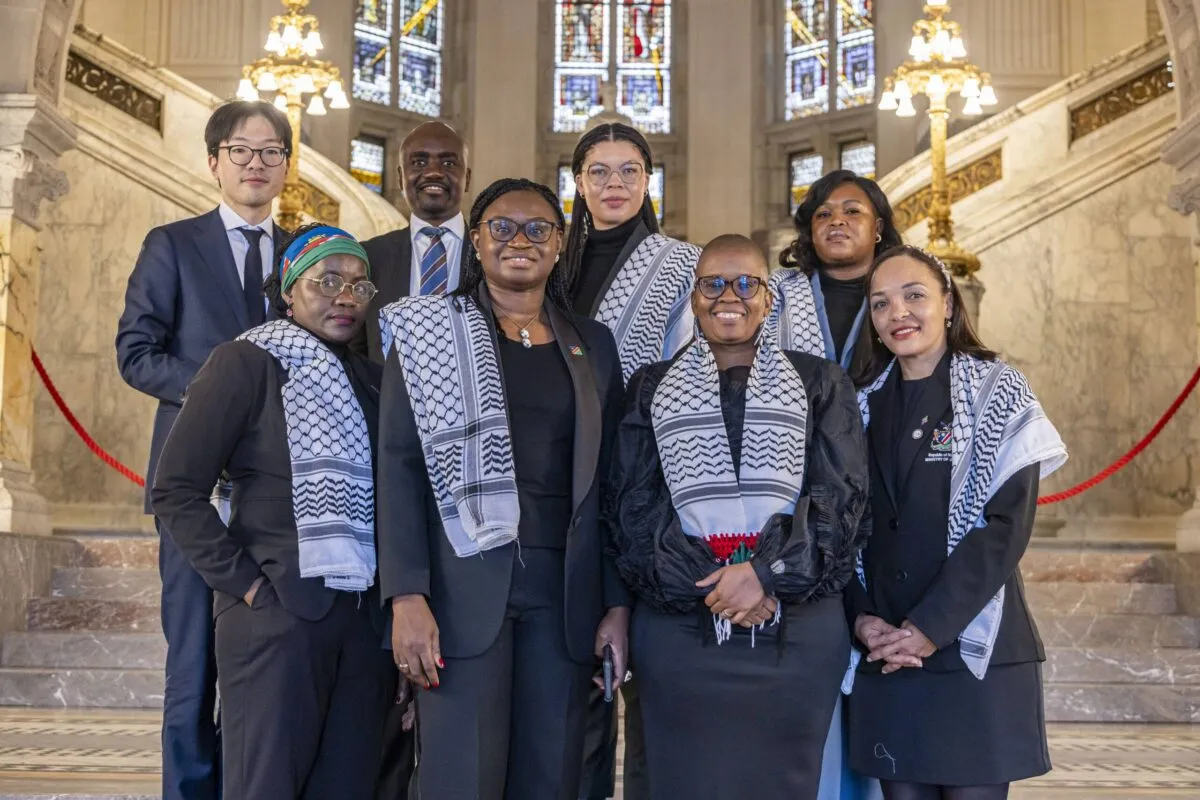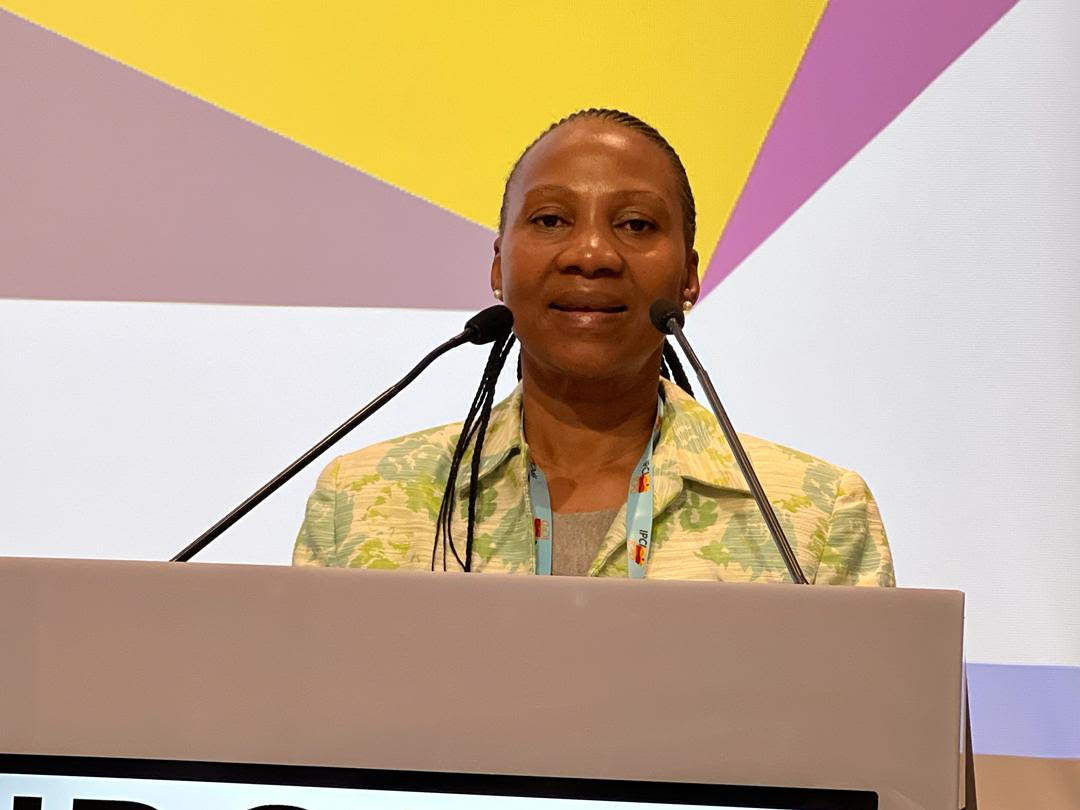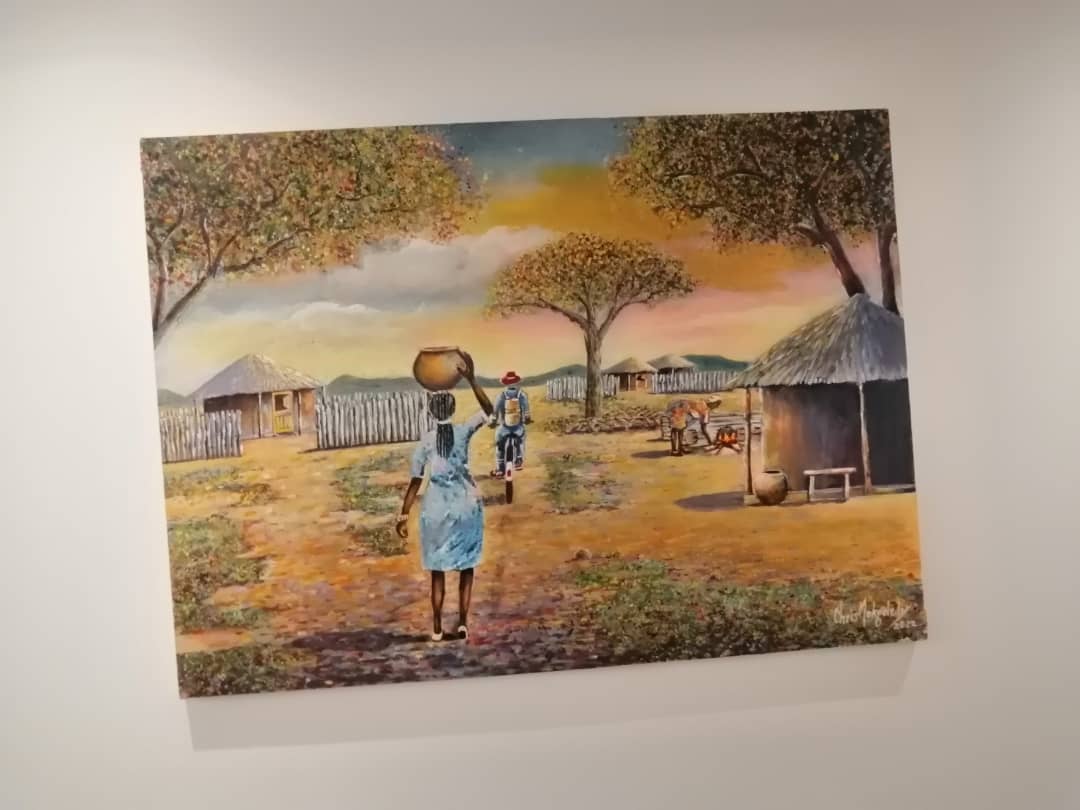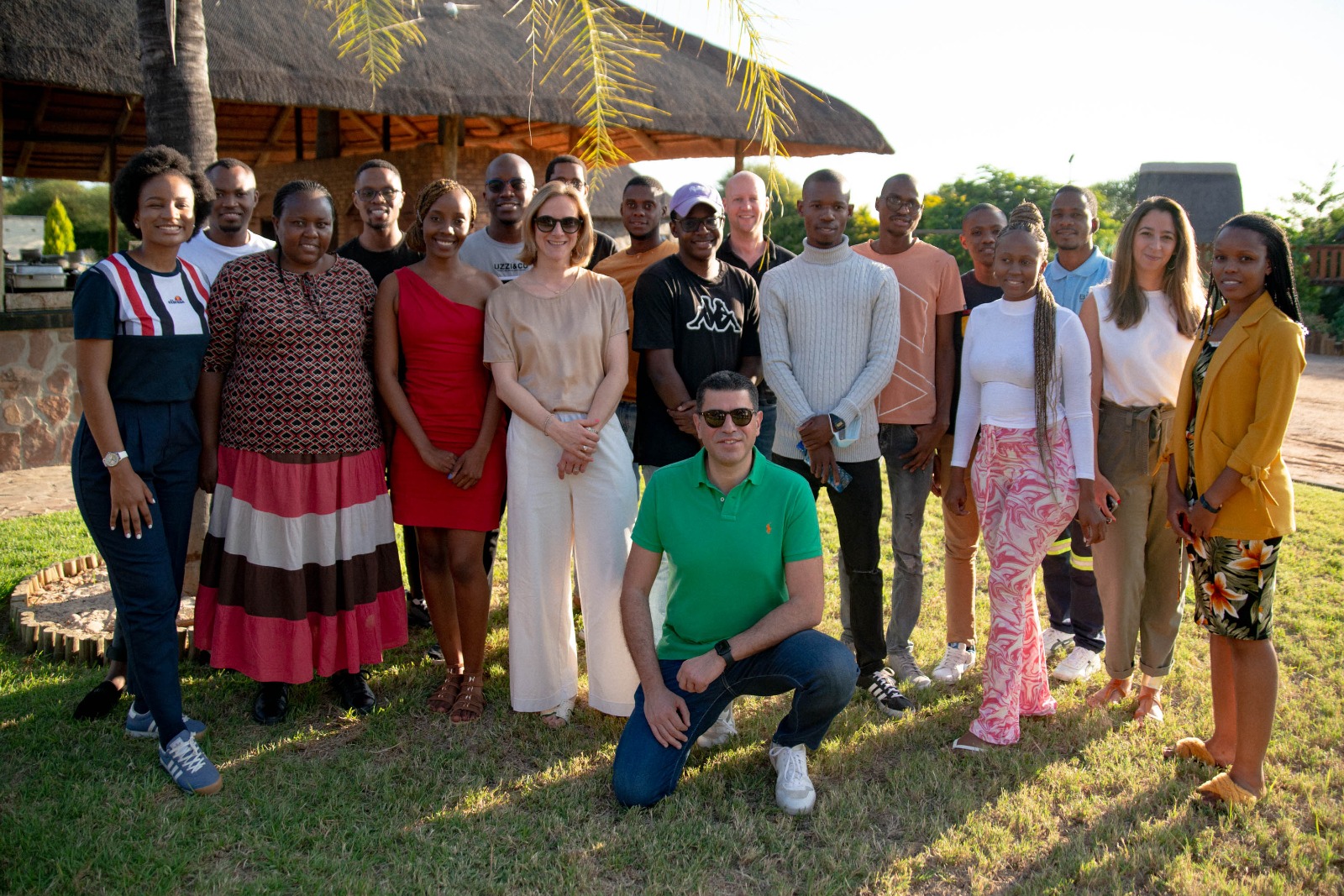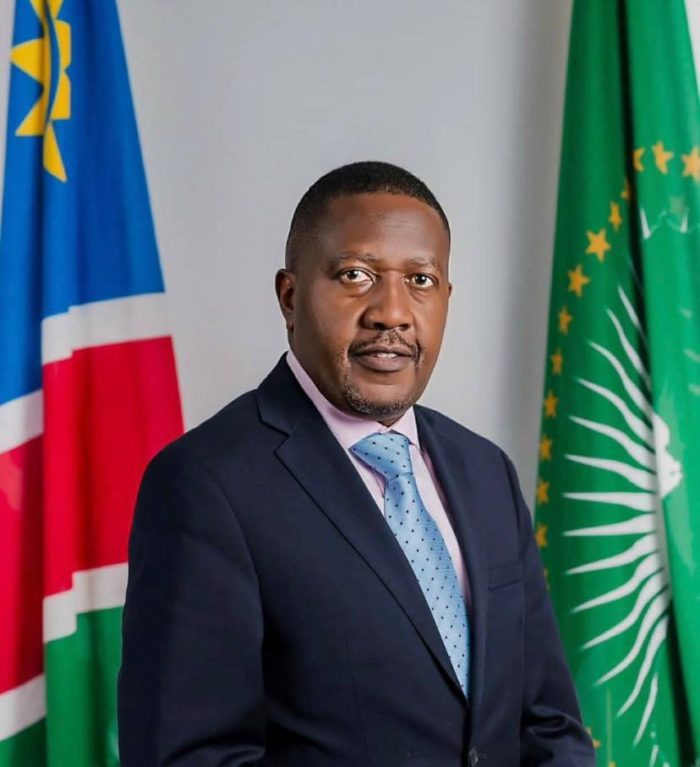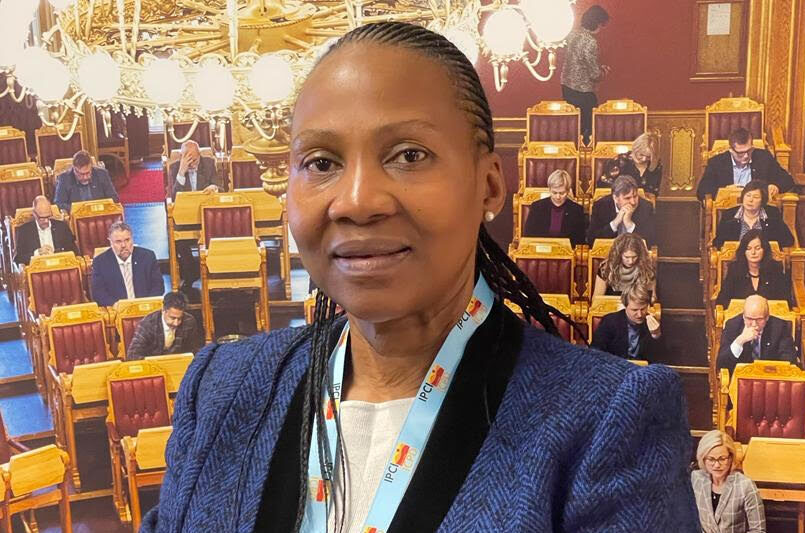
SADC PF Secretary General Ms Boemo Sekgoma at the 8th International Parliamentarians' Conference on the Implementation of the ICPD Programme of Action (IPCI) in Oslo, Norway on April 12 ,2024. Photo: Contributed.
By Moses Magadza
Members of Parliaments of the SADC Parliamentary Forum (SADC-PF) were among lawmakers from at least 100 countries that met in Oslo, Norway this week to consider ways of better delivering Sexual Reproductive Health Rights for women and girls.
SADC PF Secretary General Ms Boemo Sekgoma led a delegation of MPs from SADC to the 8th International Parliamentarians’ Conference on the Implementation of the ICPD Programme of Action (IPCI).

The two-day conference ran from 10 to 12 April 2024, 30 years after 179 countries committed to prioritize SRHR in their development agendas.
In addition to MPs, the conference drew the participation of Civil Society Organisations, people in academia, representatives of United Nations agencies and other stakeholders to critically review progress made and gaps that remain in delivering SRHR.
Ms Sekgoma served as a resource person during a roundtable discussion focusing on political leadership and the role of parliamentarians in promoting democracy and governance.
In tone-setting remarks, she argued that the implementation of the ICPD Programme of Action as well as the Sustainable Development Agenda 2030 depends on the strength of institutions at the helm of the state.
She said parliaments were key in promoting democracy and governance, to advance SRHR as outlined under Part 7 of the ICPD Programme of Action, and SDG 3 relating to health and well-being.
She observed that in the wake of COVID-19, global recession and inflation, the implementation of SRHR had dropped on the priorities of mainly developing countries, making the need to revitalise programmes of action to advance SRHR urgent.
“According to UN Women, every three minutes, an adolescent girl or young woman acquired HIV in Sub-Saharan Africa in 2022, demonstrating that there are deep-seated inequalities which still stand as obstacles to access protective SRHR commodities.
“The Gender Gap Report issued by the World Economic Forum in 2023, shows that the gender divide is far from the 50-50 equality objective in nearly all regions of the world,” she noted.
She contended that gender inequality not only exacerbates the vulnerability of women and girls but thwarts their access to SRHR facilities and services.
“The fabric of society is such that whenever it is affected by a systemic risk, the most vulnerable segments of society are immediately affected, including women, children and key populations.
“In the past, with the COVID-19 pandemic lockdowns, it was reported that Gender-Based Violence against women increased by at least 10% whilst crime reporting by women decreased,” she stated.
Ms Sekgoma said although natural disasters, civil strife and armed conflicts affect everyone, women and girls in developing countries bore the brunt of internal displacements, loss of housing and employment.
“When there is civil strife or armed conflict, the facilities to shut down first are those providing SRHR facilities to women,” she said.
She argued that empowered parliaments could change the picture and “ensure that SRHR is sustained through consistent programmes and initiatives”.
She said: “Parliament can increase budgets for cervical cancer screening as well as HIV testing, increase access to free SRHR commodities, exercise oversight and interrogate government on measures taken and how to improve them, and enact protective legislative provisions to prevent discrimination in access to SRHR by key populations.”
Noting that democracy was essential for parliaments to function effectively, Ms Sekgoma called for greater transparency and accountability, as well as engagement of CSOs, women representation and the protection of marginalised communities.
After a robust discussion in which contributions were confidential to encourage openness, the SG said there was consensus that parliamentarians needed to be supported to pursue democratic accountability.
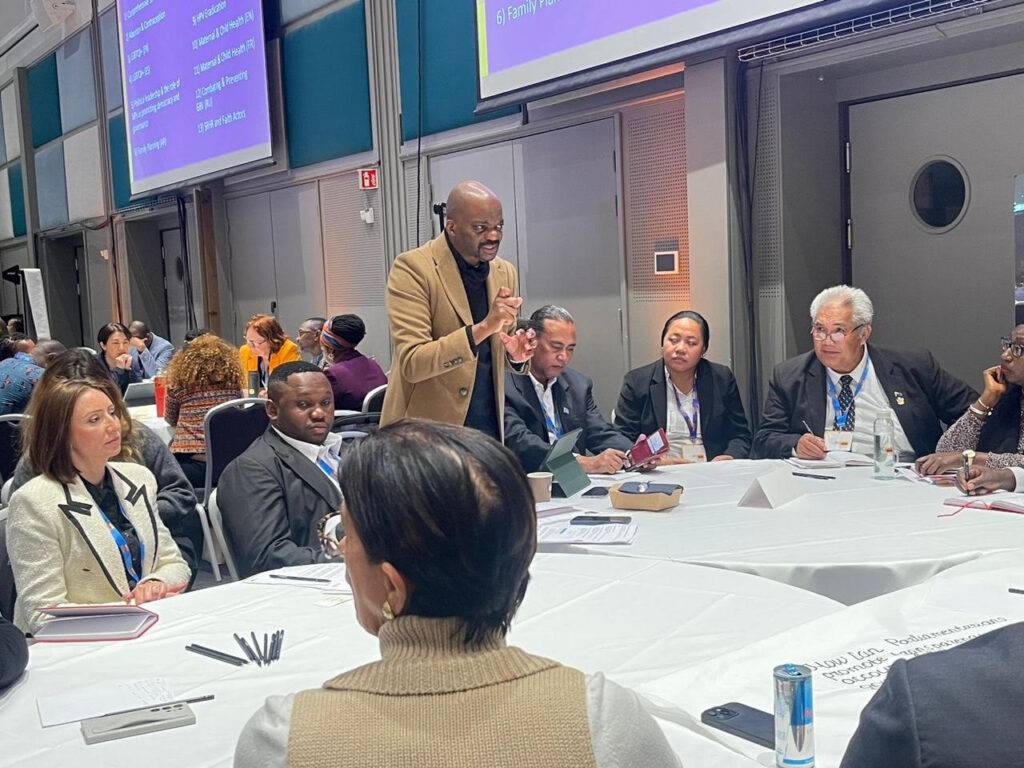
“This entails that Parliament must be buttressed by a robust partnership framework which involves CSOs, faith and traditional leaders as well as representatives of key populations who will feed the right information to MPs for oversight and legislative initiatives to be undertaken.”
She said outreach programmes including public hearings, sensitisation campaigns or constituency projects which allow voices of citizens to be heard, especially on issues such as corruption and money laundering which make citizens lose faith in public institutions, were encouraged.
On gender responsiveness, the SG said parliaments were encouraged to develop a roadmap to achieve gender parity well before 2030.
“This would include equal representation of women in Parliament as well as representation of women in all operations of the Executive and in decision-making positions generally.”
The need for gender to be mainstreamed through the yearly budget and for Parliament to constantly re-assess and track commitments made towards SDG 5 on gender equality, was stressed. Delivery on commitments made under international covenants, was also underscored.
There were calls, also, for domestication of SADC Model Laws, international Covenants, the UN Declaration of Human Rights and other instruments to progressively ensure that national laws are aligned to internationally acceptable human rights norms and practices.
“This includes protection of key populations, recognition of the LGBTIQ community, addressing discrimination in prison settings, or ensuring that People Who Inject Drugs (PWID) are rehabilitated, to mention but a few,” Ms Sekgoma said.
She urged parliamentarians to leverage on the four functions of parliament, notably legislative, budgetary, oversight and representative to effect desired change.
She concluded: “Laws are important, but they are not enough. At the same time, oversight is important, but it is not enough in itself. Parliamentarians must therefore be apprised of existing SRHR legal and policy gaps and innovate around parliamentary initiatives that support one another and ensure that clear targets are met.”
(C) TPA2024
